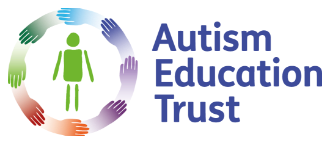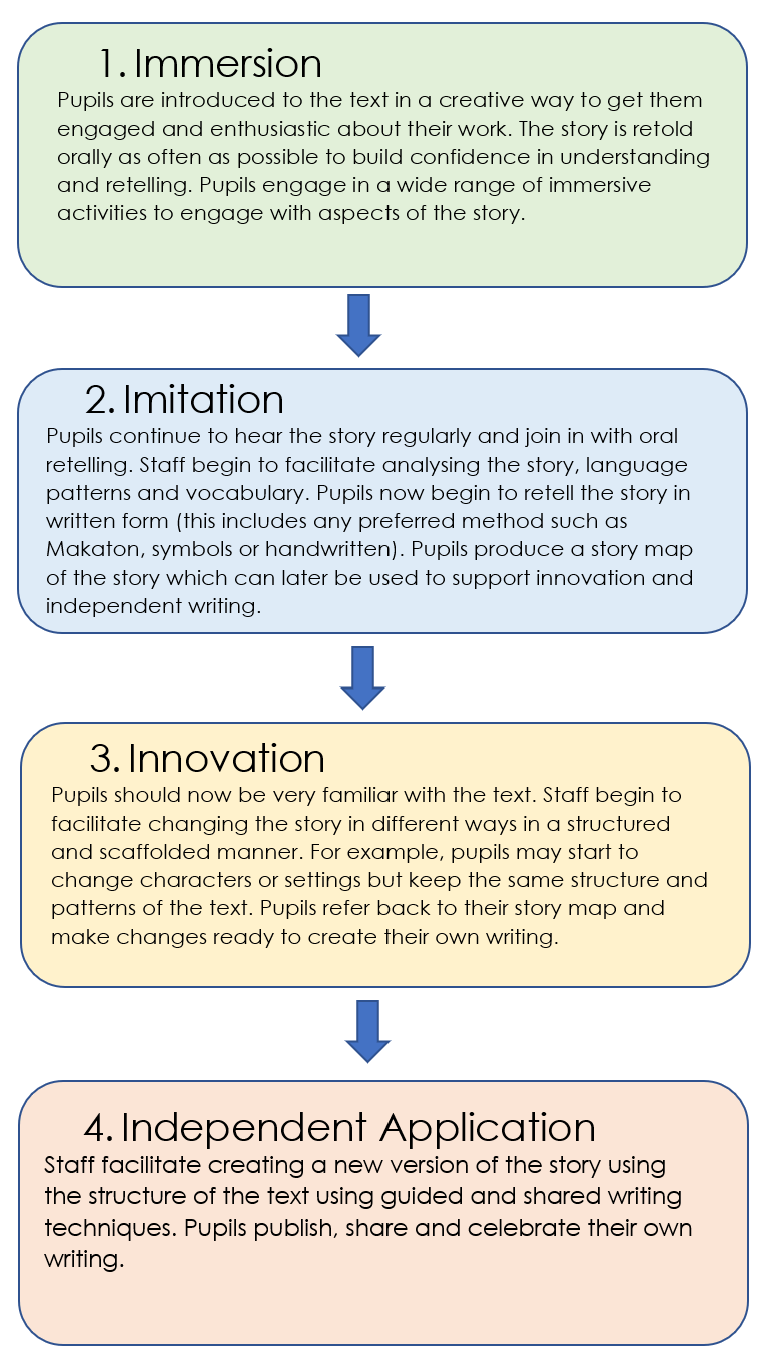English
Woodley Writing
Intent
What makes a good writer?
Here at Woodley School we support our pupils to develop an enjoyment for reading and writing. We want them to enjoy books and engage with a wide range of texts so they can begin to recognise quality writing and draw upon it (consciously or unconsciously) as models for their own work.
We want our learners to become creative in their writing and find the writing process engaging, enriching and fulfilling. As such all our pupils take part in immersive experiences and activities relating to the text they are studying so they become familiar with structures, key vocabulary and language patterns.
As they move through school we want pupils to become aware of the key features of writing and different genres, and develop the means to create and express their own ideas. Pupils will make choices about content and begin to learn how to plan and prepare their own writing. Our most able learners will also begin to reflect upon their work, refine it and make improvements as they become more confident writers.
It is useful to explore the such processes which make a good writer in a learning context to support developing writers. At Woodley School we are aware of the difficulties the writing process may pose to our learners. Differences with executive functioning, which plays a critical role in planning, organisation and decision making, mean autistic pupils may find it difficult to access and utilise information and organise their writing.
In order to best support these challenges we follow the Talk for Writing approach which explores writing developmentally and guides pupils through the thinking and creative processes involved in a structured way. We have adapted the approach to best meet the needs of our learners.
Using Talk for Writing allows us to support, guide, rehearse and repeat writing processes alongside pupils so that ultimately they can be internalised and pupils can develop confidence, creativity and autonomy in their writing.
Implementation
The Teaching Sequence for Woodley Writing
For each text studied all learners are supported to work through 4 phases at a pace that suits the class.
The 4 “I”s are based on the principles of how people learn and can be adapted for learners at any stage across school.
Makaton Supported Literacy
Makaton signs are used across school during English sessions to support all learners to access texts, develop their understanding, aid recall and support the writing process.
Key vocabulary is signed and pupils are encouraged to join in as they become familiar with the text. Often pupils and staff will learn the signs together.
In addition, classes my use actions for particular parts of the text if they best serve to support understanding and recall. For example, if a character is running, the class may get up and run on the spot for this part of the story.

Impact
English encompasses all aspects of communication. As such it forms a basis for pupil participation in all learning across the curriculum and in wider aspects of life. English underpins pupil achievement and supports a sound base for lifelong learning. Woodley School & College aims to develop pupils’ skills in reading and writing.
Our aim is for all pupils to:
- Develop a lifelong enjoyment of a range of literature.
- Be exposed to a wide range of texts and literacy opportunities which may lead to them becoming competent readers and writer
- Have a positive attitude towards books and reading, reading widely for pleasure and information
- Enjoy writing in different contexts and for different purposes and audiences, adapting their language and style for different purposes
- Write clearly, accurately and coherently and/or use symbols or AAC to communicate effectively
- Be curious and creative when it comes to reading and writing, for example by being interested in learning the meaning of new words
- Develop their vocabulary
- Be able to clearly explain their understanding and ideas
- Listen carefully and sensitively to those around them
- Develop the ability to understand and respond to the people and environment around them
- Develop their own preferred means of communication – this may be verbal, written, symbols, objects, pictures or signs
- Interact and communicate effectively in a range of situations
- Make choices, ask questions and be actively involved in decision making
- Obtain and use information about the world around them
- Enrich and broaden their experience of the world around them
- Develop their creativity
Handwriting & Fine Motor Skills at Woodley
Handwriting is an important skill to support success in English and across the curriculum.
At Woodley School we recognise many of our learners have difficulties in a number of areas that may make mark making, letter formation and handwriting more challenging. For example, problems in fine and gross motor functions may make manipulating a writing tool difficult. Many of our students also have difficulties with pencil grip and spacing of words as a result of special awareness difficulties. In addition, sensory and proprioception issues may result in difficulties in sensing limb and finger positioning which is necessary for handwriting. Differences in visual perception may also affect how the shapes of letters are perceived and therefore reproduced.
We are aware that such difficulties can often lead to a lack confidence in writing and pupils becoming resistant to write as a result of negative experiences. As such we work hard to support our young people to overcome this and develop a love of writing through engaging and interesting activities which build self-esteem and confidence.
As such all our pupils follow a scheme developed by Occupational Therapists which targets basic motor skills associated with writing. As a school we have adapted the scheme to best suit the needs and abilities of our learners.
All our learners regularly engage in short burst fine motor activities. Initially the programme targets core strength to develop key muscles which support the body correctly when writing. The scheme moves on to develop fine motor skills and hand skills using engaging activities. While activities in this scheme develop handwriting, they are very creative, and most do not involve pen and paper.
As learners progress through the scheme at a pace appropriate to them developmentally, they will start to be introduced to more formal handwriting techniques.
As a school we recognise that our learners may more readily access the curriculum by use of modern technology including ipads and computers. We therefore also introduce typing skills as pupils become ready for this. Additionally, keyboard navigation skills and elements of typing are covered in our computing curriculum.


